Fort Solis: How an indie studio fulfilled its plan to deliver a TV-quality sci-fi thriller
Exploring the story behind the upcoming narrative thriller, Fort Solis
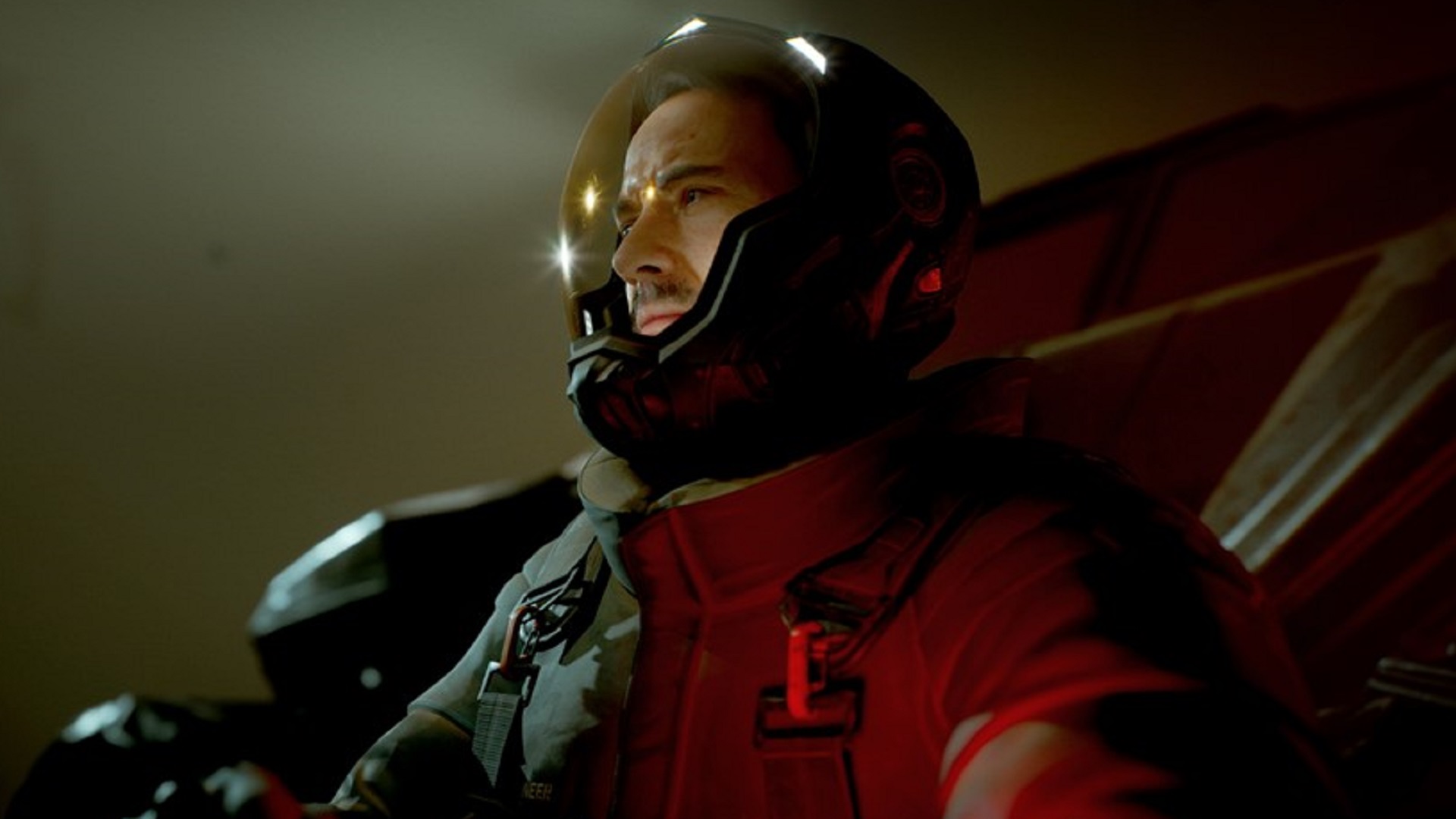
Maintenance engineer Jack Leary is working the graveyard shift at Prospect One, a remote mining outpost on Mars, when he receives a red alert from the nearby station of Fort Solis. Suspicious that it was manually activated rather than automated, he calls in to request a response; when that isn't forthcoming, he tells colleague Jessica Appleton that he's heading over to investigate. With storm warnings incoming, he hops inside a bulky rover to drive the short distance to the other base, the audio score as the vehicle trundles toward its destination making it clear he's unlikely to receive a warm welcome. The signs, then, are already ominous when, shortly after his arrival, he delivers a dire warning over the radio to his co-worker: "Jess… Solis… we are not alone!" But then he immediately breaks into laughter. He's only kidding. Everything's fine. For now.
It's not the only time we're wrongfooted during our hands-on time with a game that's pitched, tellingly, as a 'singleplayer thirdperson thriller'. Despite initial appearances to the contrary - and subsequent discoveries that heighten the sense of apprehension, well before we discover bloodied bandages on an office desk and a red handprint smeared on a pair of surgical curtains in the medbay - this is not that kind of science-fiction horror.
We might naturally stiffen slightly in anticipation as we advance down a narrow passageway, illuminated only by the flashlight on our spacesuit, but we soon realise we're not going to see alien tentacles bursting out of a vent, or stumble across a corpse that suddenly sprouts arachnid legs and scuttles towards us. Sure, something out of the ordinary is going on here. But that mystery forms the basis for a story that, while set on the Red Planet, hits much closer to home. The computerised voice response to your first attempts to enter the titular facility spells it out: "Lockdown in full effect".
It's no surprise, in other words, when game director James Tinsdale tells us that the idea for Fort Solis began to germinate during the early months of COVID-19. With plenty of time on his hands, Tinsdale spent a good deal of it watching shows on streaming services such as Netflix. "I think everybody watched, like, the first episode of everything that was on there, as we ran out of stuff to watch," he smiles. "But there are so many good storytellers on there." Since then, he notes, HBO's The Last Of Us has seen the game series enter the broader cultural zeitgeist.
But, inspired by the storytelling of the best shows he saw, Tinsdale imagined taking a TV-quality story in the other direction: "Wouldn't it be cool using today's technology just to move into that space with a game?" Looking for comparison points, he didn't see too many for a small developer with the production values he was after: the kind that would allow him to tell a human story with authentic-feeling characters. The kind more commonly associated with a much larger team. "But we felt if we could create something truly immersive visually, we could have something really compelling."
Exploring, discovering and traversing
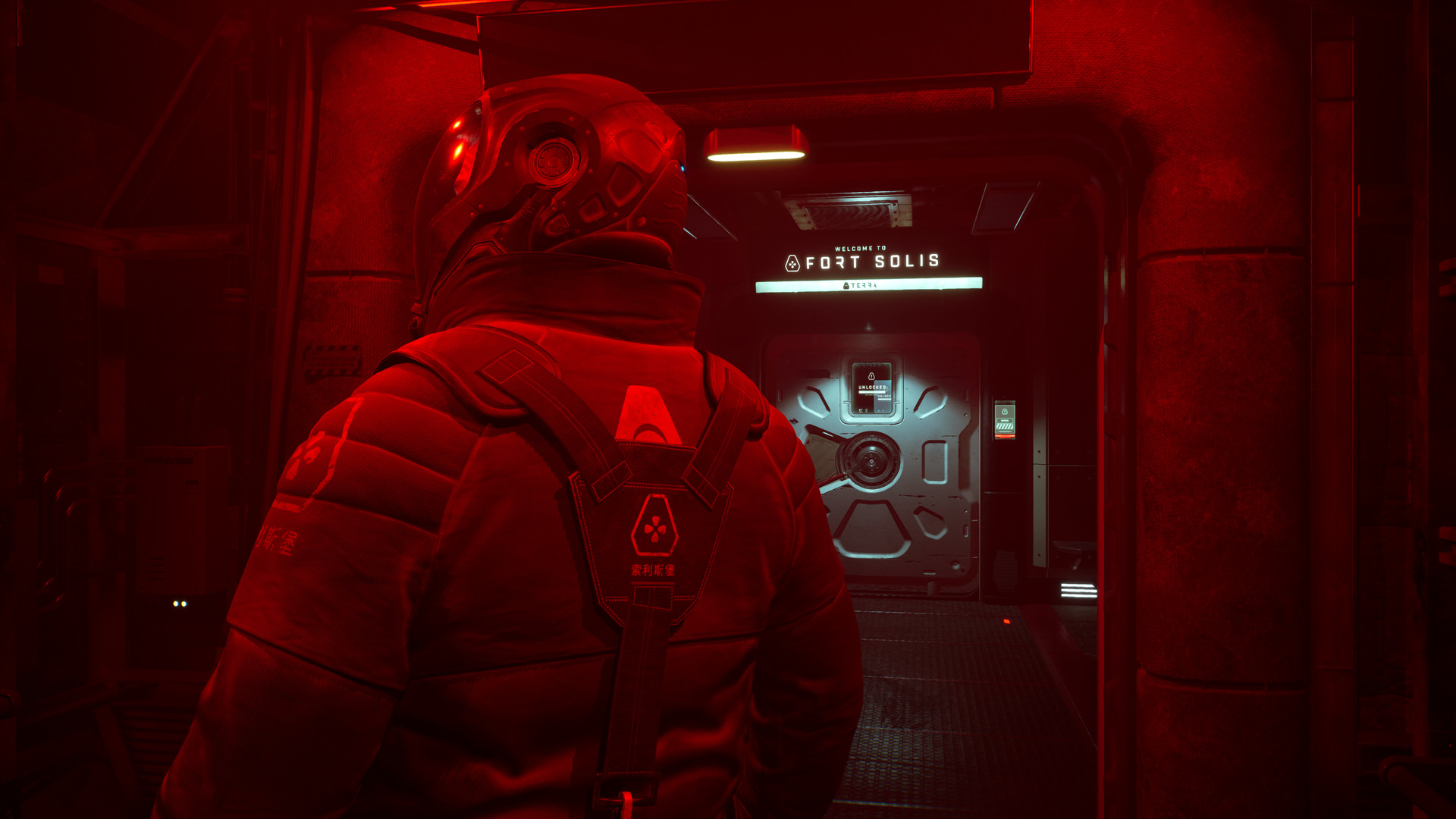
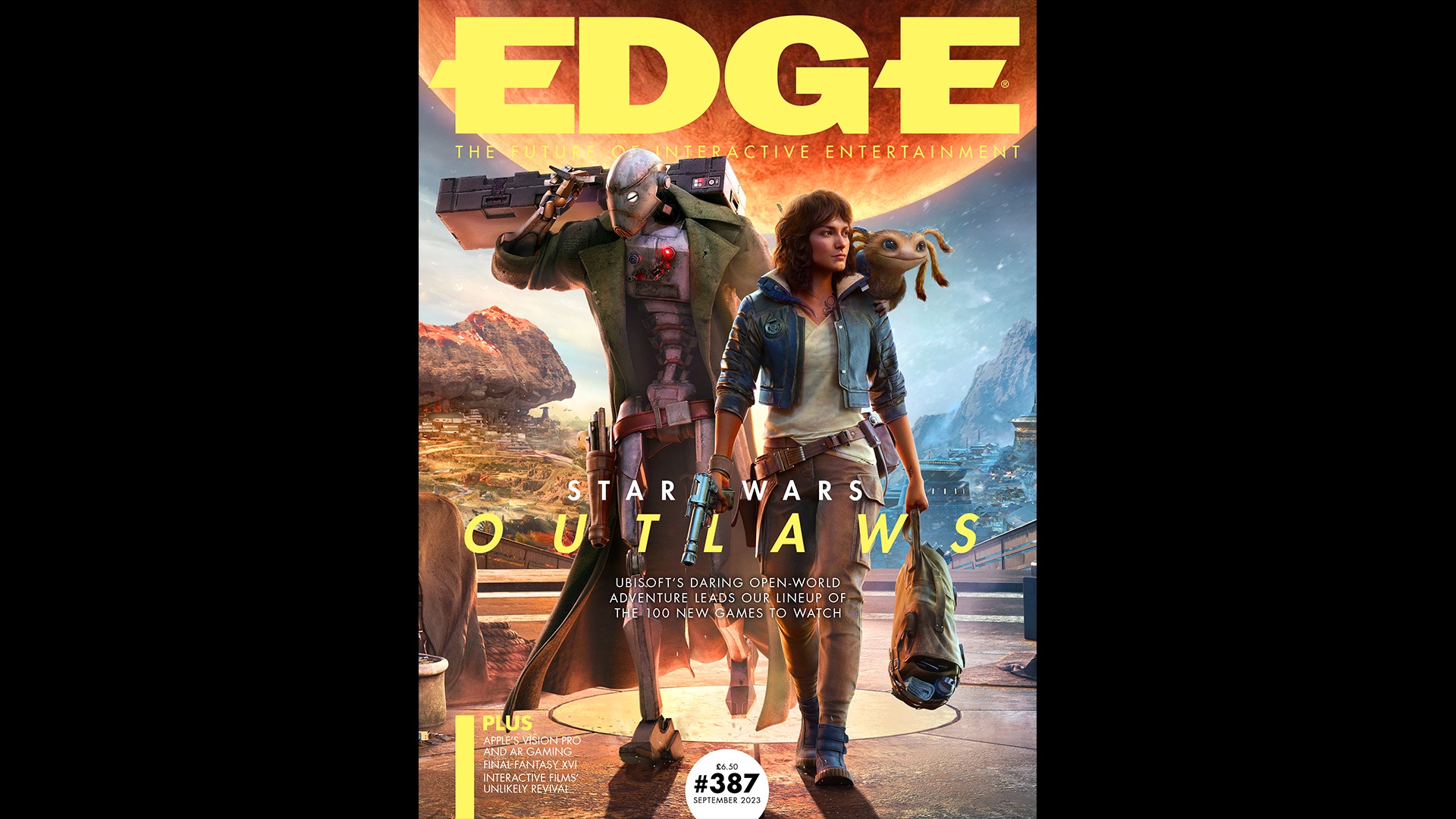
This feature originally appeared in Edge Magazine. For more fantastic in-depth interviews, features, reviews, and more delivered straight to your door or device, subscribe to Edge.
Like the game, the story of Fort Solis's development started with two people: Tinsdale and art director Mark Cushley. With both boasting plenty of industry experience, including work on triple-A games (Tinsdale spent time at Asobo Studio, while Cushley is an alumnus of Traveller's Tales and Evolution Studios), they were able to plot out the type, scope and size of game they could reasonably build with a relatively small team. Two became three, with the addition of senior technical animator Matt Lake; and then four, as producer Max Barton came aboard. After about six months, they were able to secure investment and hire more: currently, Fallen Leaf is up to a still-modest ten staff between its Liverpool and Warsaw locations. Those Polish connections afforded the studio the opportunity to outsource some parts of development to another Warsaw-based team at Black Drakkar Games, with another dozen staff working on the game there.
It's an unusual setup, albeit one that's firmly in the spirit of international collaboration we associate with space exploration. "We knew we wouldn't be able to just staff up overnight," Tinsdale says. "It's very difficult to attract people to what is essentially a new studio with a brand-new idea. It's a big leap." Indeed, one key member of the team who made that leap of faith was technical director Simon Bratel, who came on board having spent time at Rockstar working on the hugely anticipated GTA 6. This particular insight brings to mind the Mark Twain quote that opens Fort Solis - one that fits both the story it's telling and the developer's bold ambitions: "Courage is not the lack of fear, it is acting in spite of it".
Weekly digests, tales from the communities you love, and more
Indeed, a degree of bravery was required for the next step in the process: casting. Fort Solis is effectively a three-hander, albeit with one of the trio kept largely out of sight – at least for the early part of the game. For protagonist Jack Leary and his fascinatingly ambiguous foil, medical officer Wyatt Taylor, Tinsdale decided to shoot for the Moon – after all, Duncan Jones' film was the kind of low-budget, high-impact sci-fi tale he was hoping to make. For Roger Clark, still best known for playing outlaw protagonist Arthur Morgan in Red Dead Redemption 2, the opportunity to take on another lead role was a no-brainer. "I couldn't say no, because it was an opportunity to do something completely different," he says in his warm Irish-American brogue, which he retains for his role as Leary. "And to show the fanbase that I've been lucky enough to show my work to that there's more to life than just being a cowboy."
He was compelled, too, by the news of who he'd be working alongside – a man he says he's been studying for years. "My wife says it's just playing videogames – I call it research," he laughs. "That's what I tell the IRS as well."
That man is, of course, Troy Baker – a performer, you'd imagine, who's prominent and established enough to have his pick of the scripts that come his way. "Oh, boy. Will you pass that rumour along to the rest of the industry?" Baker grins, before an abrupt Lampardian transition as he outlines what drew him to Fort Solis. "I have discovered for myself that I am able to make more informed decisions, and ultimately the relationship gets better, when I get to talk to the creatives as early and as much as possible."
Perhaps surprisingly, the first thing Baker wanted to know about wasn't, in fact, his character. "When James approached my team about this, I wanted to find out: what is the experience? What is it you're trying to make?" Baker explains. "Because I want to find out if I can get behind the project. The character is always kind of something that is easier for me to find my way into. But what is the project? What is this experience that we're trying to create together?" It's an understandable perspective, since this is new territory for both Fort Solis's developer and its stars.
And the game, admittedly, is still somewhat of an unknown quantity to a lot of people. "The verbs are always important" was Baker's instant response when Geoff Keighley asked him about it onstage at Summer Game Fest 2022 when the game's initial trailer debuted. (Without Baker and Clark being present, you sense it might otherwise have become a little lost amid the glut of science-fiction games showcased at the event.) Exploring, discovering and traversing were the three Baker ultimately came up with, but the inference we drew at the time – correctly, it turns out – is that story is king here.
Cathartic characters
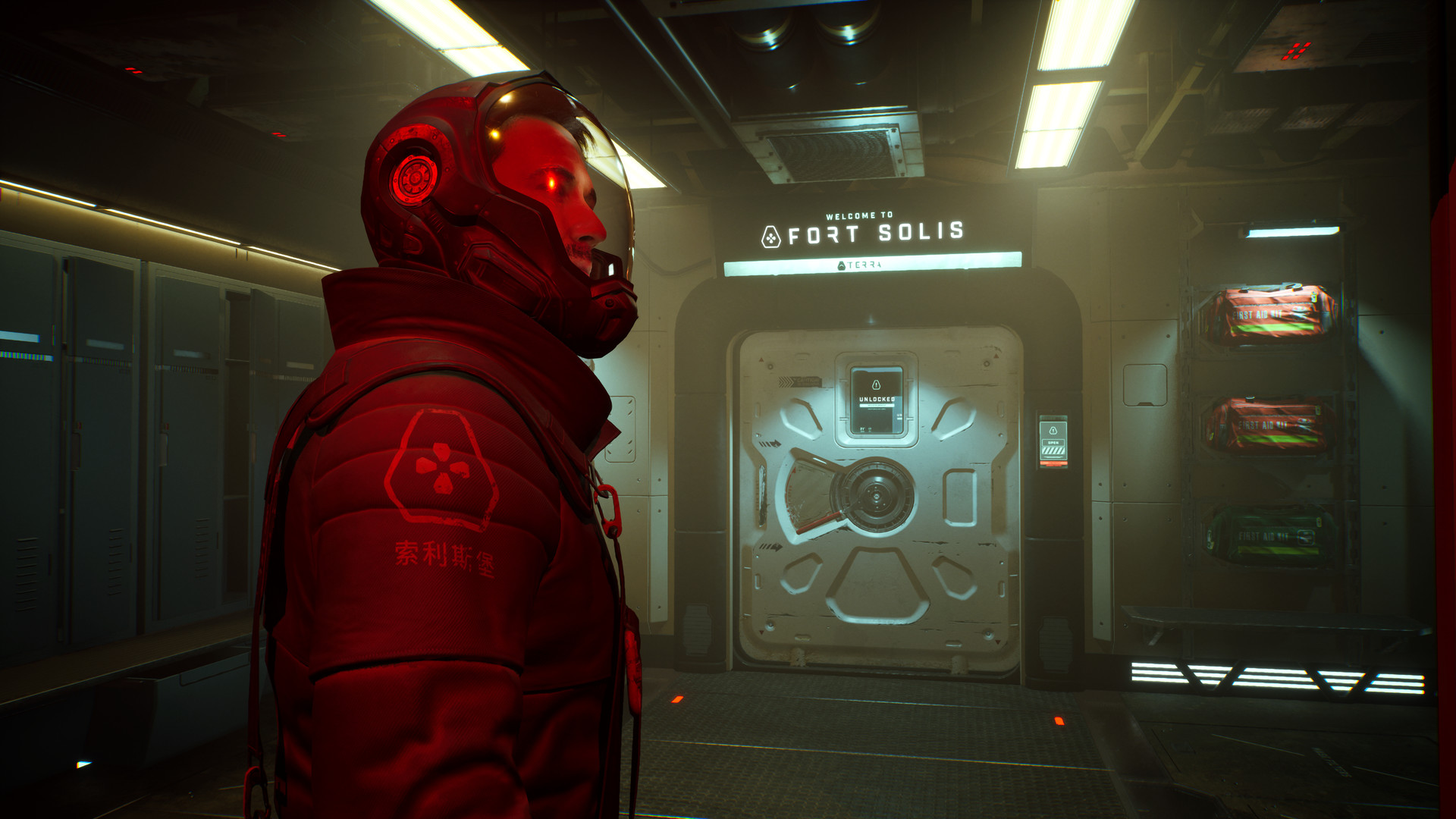
Fort Solis's opening chapters contain all three of those verbs, with the first two present in greater proportion to the third – unless you consider walking traversal on more than a technicality. But perhaps we should, since that seems most instructive: without seeking to use the label in the pejorative sense, this is as close to a walking simulator as it is to, say, Dead Space. At least for the game's first couple of hours, Fallen Leaf answers the question of what a sci-fi survival horror might feel if the latter element were stripped out entirely.
The focus, instead, shifts towards finding out what exactly happened here – the common narrative foundation of many a genre piece, but one that in videogames is usually interrupted by combat and the occasional distraction of resource-gathering and upgrading. It's not quite true to say there's none of that here, but you'll be spending most of your time picking your way slowly around rooms and corridors, opening some locked doors via computers, and locating power cells for others.
That in itself is absorbing, not least because the base itself is realised so convincingly. Belying Fallen Leaf's limited means, these recently vacated spaces bear comparison to the kind of luxuriously detailed settings you'd expect from studios with vastly superior resources, with a clear goal of reaching triple-A standards. Leary's measured movements, which reflect his advancing years without leaving him feeling too heavy or unresponsive in the hands, encourage you to take your time – giving you the chance to linger in a circular lobby with a sakura tree at its centre, for example, while chugging a beer from a nearby vending machine if you fancy.
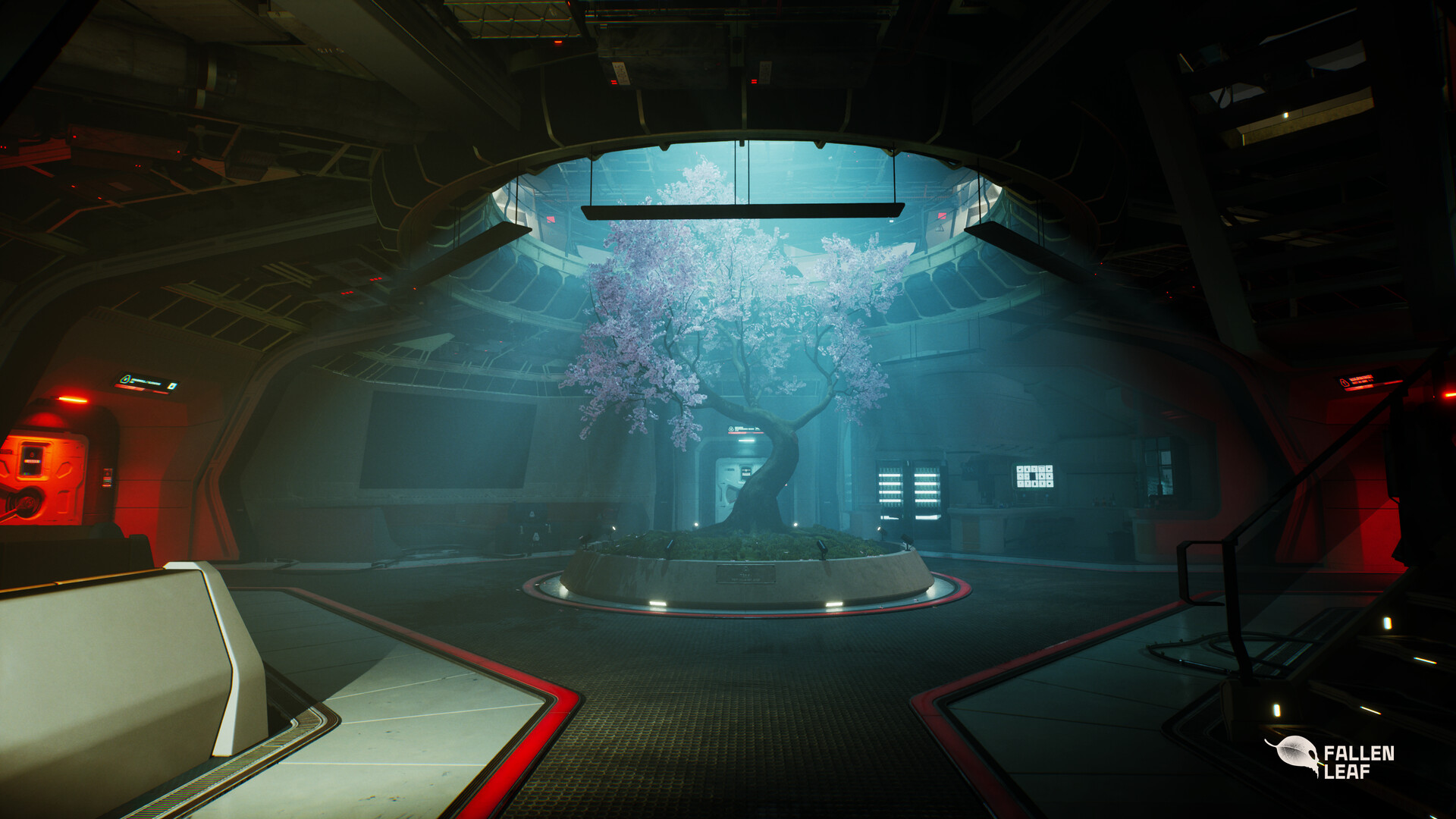
Points of interest are unobtrusively highlighted by small circles that widen as you approach, making it obvious what you can study more closely or interact with directly as you venture into crew quarters and offices, rummaging through belongings for clues. You'll find a whiteboard in one room, with a reminder handwritten in marker pen to call home on a specific date. There's a fully interactive Rubik's Cube in another – solvable in hands less rusty than ours. You'll see plants, snacks, tools of the trade, photographs of loved ones. And, most significantly, you'll find video messages, which gradually fill you in on what went wrong at Fort Solis.
It's through these that we're first introduced to Baker's character. Behind those stern features, Fort Solis medical officer Wyatt Taylor is initially a sympathetic figure, as we see him express concerns about his fellow workers, who, despite the risk of radiation exposure, have been working longer hours at their exterior posts. But it's in a medical log – designed, as he outlines, as a mental-health aid – that he lays bare his own feelings in a scene that feels all too relatable. "I just… I need to spend time with my family," he sighs, sadly. "And not just watch them… through a screen." Understatedly moving, it's some of Baker's finest videogame work to date.
While both male leads credit Tinsdale with affording them the leeway to improvise and adapt elements of the script as they grew into their characters and played off one another, Baker says that not a word of this particular scene was changed. "Look, it's easy to say, 'Right, let's do a pandemic special', but the foundational things that exist outside of the event, the isolation and feeling alone – people understand that feeling," he says. "One of the best pieces of writing advice I've ever gotten is 'don't be clever, just be honest'. And the only thing that we had to convey in this one scene was that this guy feels alone."
Nor did Baker have to dig too deep to tap into the emotion of the moment. He alludes to the "collateral damage" that comes with working in videogames: whether building a studio or spending time away in a mocap studio, everyone has had to spend time away from their families. "And that's who we're doing it for!" Baker continues. "James being a father, me being a father, Roger being a father, understanding what it's like. There's this one line that he says where it's like, 'Their smiles. I just wish I could bottle that up'. So you understand this guy is just at the most desperate place in his life. And this was happening to me when finally the world opened back up and I spent about 40 per cent of the year away. So when we go to shoot that scene, there was no acting, it was just: change my name for that guy's name, and that was it. It's one of those scenes where I'm forever grateful to James for allowing me to have it because I think it was cathartic for both of us." Tinsdale, far from sunny South California in Liverpool's Baltic Triangle, nods in agreement.
Individual moments
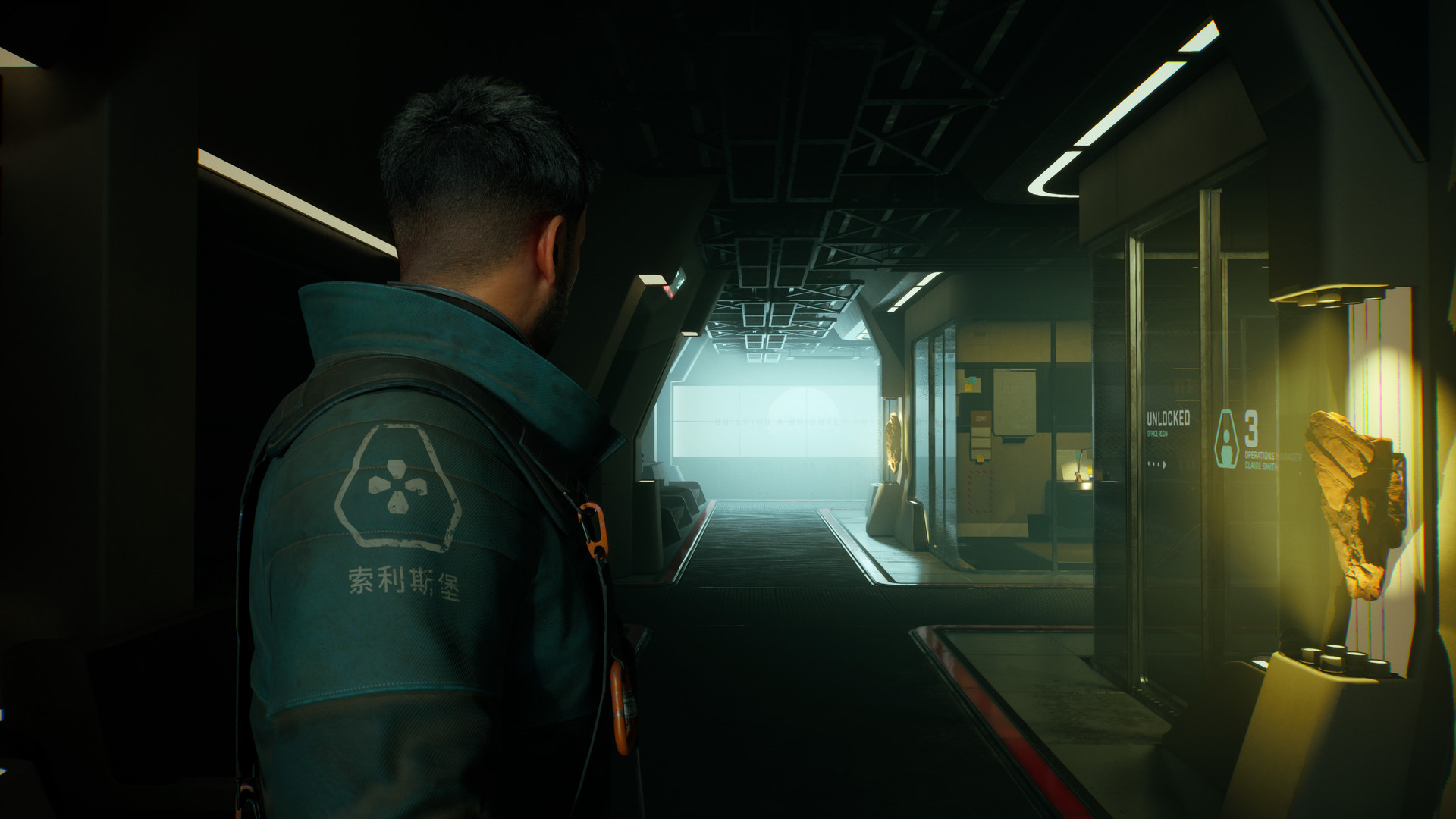
"I've said: if it doesn't further the story, further the atmosphere or the current moment, then just leave it out. And if our players respond to it, that's great."
James Tinsdale
Clark, too, found some similarities between his real-life experiences and those of his character – even though their circumstances are obviously very different. Here, the 'graveyard shift' Leary is working (and if you're familiar with the origins of that term, the first mention of it here is laden with heavy portent) refers to the point at which Mars is farthest away from Earth in its orbit: the skeleton crew left behind for maintenance are simply waiting for the planets to align more closely so that the usual trade routes can be re-established.
Even with a workmate to trade banter with - and his repartee with Appleton is an early highlight - there is a sense of isolation Clark could easily identify with from the outset. "Not to give too much of Jack's personal history away, but there's something that he's running away from," Clark says. "So he's in this place with very limited social interaction, and he's ready to go back when a little snag gets thrown in the spokes. But we all know that feeling now, and it still sends a little bit of a shiver down my spine. Like, I think a lot of that trauma is still being processed by us as a society. So I was able to bring a lot of that to Jack, absolutely without question."
That sense of desperation comes to a head toward the end of our time with the game, as a series of strange occurrences lead Leary to the realisation that he was right the first time: he's not alone. There are action beats, which range from diving out of the way of a falling platform to a sudden race against time as gas pours into the station, forcing Leary to hurry to the lobby to retrieve his helmet and avoid contamination. There's a confrontation, too (see 'Martian arts'), though you're not suddenly granted the control you might associate with, say, a thirdperson brawler. Rather, this sequence is akin to a QTE, which seems to result in the same outcome even when we whiff a couple of inputs.
For some, that might be a deal breaker. It certainly takes us a moment to adjust, to rewire our expectations of the type of game this is. Perhaps we've visited so many abandoned space stations in our time that we're simply not accustomed to exploring one unarmed, or at least being in a position to properly retaliate when threatened. But Fort Solis isn't purposely deceptive, trying to hide what it really is. And while at first we're convinced that the game's more action-focused elements are a somewhat rudimentary way to add variety or provide a change of pace, we realise it's a matter of the individual moments serving the wider story. Leary is simply acting as anyone would in these situations, which in the context of the narrative and the setting feels entirely plausible, and so it makes sense to give the player some involvement in that to deepen their connection to him. And, to a point, his environment: there's a pleasing tactility and heft to the more quotidian interactions, such as pumping a handle repeatedly to manually open the site's enormous exterior bulkhead doors.
The game's approachability is partly a practical concern – "I don't have ten designers, right?" Tinsdale smiles – but it's also a matter of pacing and purpose. "There's always a temptation to add content that doesn't necessarily have the right meaning: it's just there because we felt we needed more inputs or interactions per minute, whatever you want to call it," he continues. "And I think we've taken the opposite approach. I've tried to abstain. I've said: if it doesn't further the story, further the atmosphere or the current moment, then just leave it out. And if our players respond to it, that's great. But I certainly don't want one of our bigger moments to happen and then the next thing you're messing around with a minigame."
As such, certain interactions that might be available in one chapter will be switched off in another, a decision Tinsdale acknowledges might be controversial for some players who want more input, regardless of whether or not it fits the moment. So while it's natural that Leary might take the time to fiddle with a Rubik's Cube when he's pottering about an apparently empty station, when his situation becomes more perilous, it makes sense that he's no longer able to stop and take time out to solve it. "We're like, let's get some dialogue lines in there and create something more interesting [instead]," Tinsdale explains.
"Taut thriller"
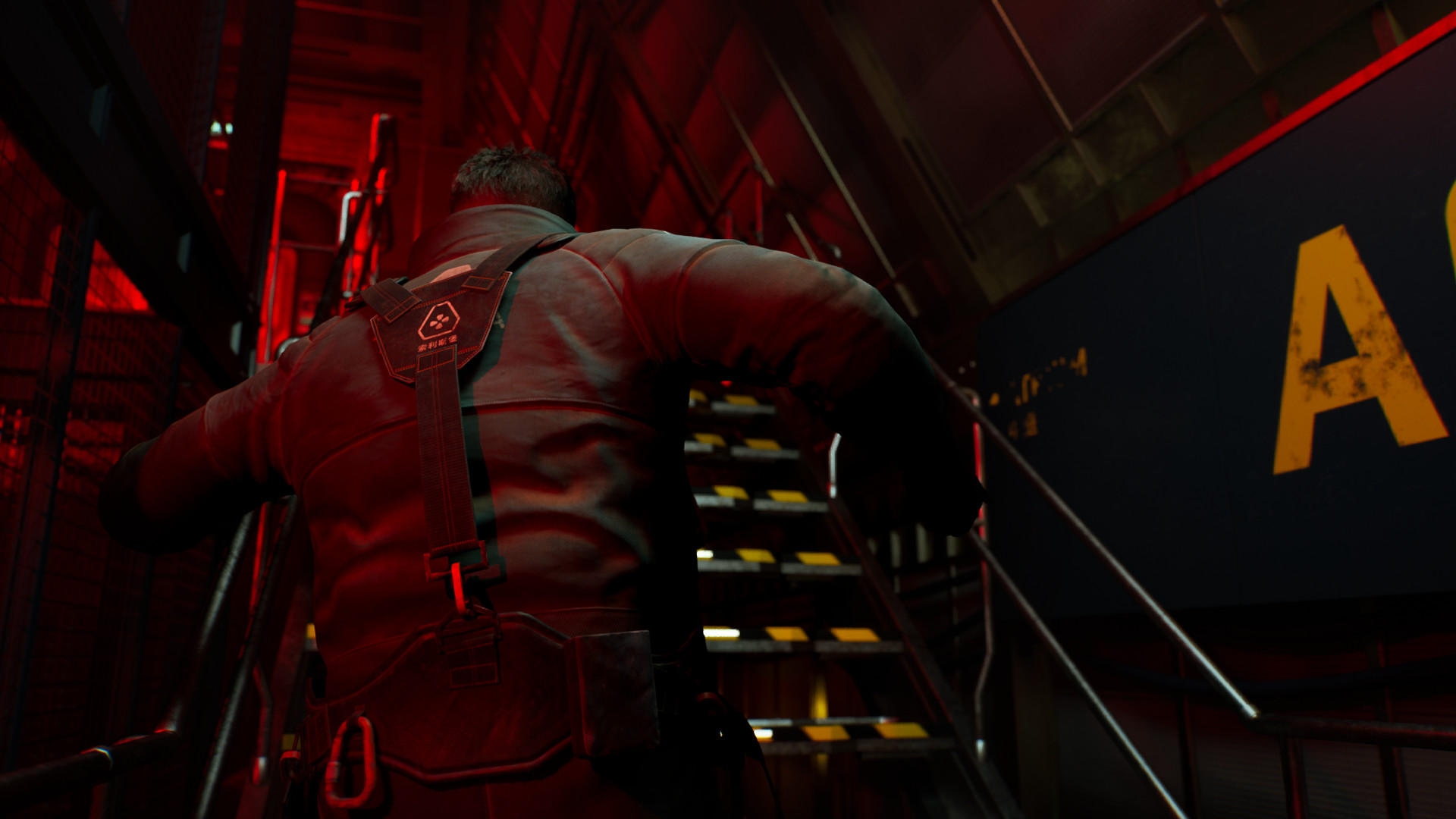
"I think if we go dense and deep rather than wide, that is what actually gives a far more fulfilling experience"
Troy Baker
There is also a desire to keep things straightforward for the very audience that might have tuned into movie and TV streaming services when lockdown began. And those who might now, as the world has opened up once more, be looking for something of a similar storytelling standard - but without the associated time investment a multi-season show might demand. "People who are looking to have that investment towards a Netflix/Amazon-style show - you know, four to eight hours, high-quality stuff, where they feel they got value for money," Tinsdale adds. "It's not a 20-hour [game]. That's probably not the audience that is going to lock into our experience. Though they're more than welcome if they want to."
"The thing that impressed me about James and his team was that, from the outset, they knew the target. They knew exactly the experience they wanted to create," Baker says. "They knew how they were going to get there, they understood the size of the studio that they were, the size of the game that it could [realistically] make, and they never wavered from it." Clark nods in agreement: "They knew what this was, and they didn't try to bite off more than they could chew, which I think is a very wise decision for a brand-new studio. And, you know, what we're starting to see is that the videogame industry has gotten so big now, and we're getting a little bit more specific in our tastes, and in the ways that we tell stories." And in the way we experience them, too: he says that he particularly enjoyed playing Stray, which wasn't too taxing or time-consuming to finish. "I don't want to be presumptive," Clark adds, "but people our age, they're looking for something that you can binge in one night or get done in a weekend."
Clearly, the implication is that Fort Solis can be precisely that kind of game. Not a game that takes over your life, but one that can leave you satisfied nonetheless: Tinsdale outlines the attempts to make it as "unbloated as possible", while Clark describes it as a "taut thriller". Baker goes a step further. "It's more: we're not painting, we're sculpting, and we're just trying to chisel away," he says. "It's like what they said about [Michelangelo's] La Pietà: chisel away everything that's not Jesus." If there's grandiosity to some of Baker's pronouncements, it's backed up by his unswerving, infectious belief in the power and potential of interactive storytelling. "The common denominator for everybody is that we want an experience that moves us," he says. "Something that speaks to the human condition."
As if to illustrate that you don't need a 30-hour game with a nine-figure budget to achieve that, he goes on to wax lyrical about Playdead's Inside, and how highly regarded it is among his industry peers. "People say it's one of the best things they played in the last ten years, and it's two hours long!" As with Fort Solis, he notes, a significant amount of Inside's development time was evidently spent refining and polishing; where many developers seek to add value through addition, Playdead's game is a quintessential example of accomplishing the same through subtraction.
Whether Fort Solis can scale similar heights to that modern classic remains to be seen, but Baker is certainly bullish about its chances of success. "I think if we go dense and deep rather than wide, that is what actually gives a far more fulfilling experience," he says. "Players are hopefully not going to say, 'It's too short', but rather, 'Man, I'm full'. Well, yeah – because what we gave you was dense. We're trying to create a neutron star, not a black hole."
This feature originally appeared in Edge magazine issue 385. For more fantastic features, you can subscribe to Edge right here or pick up a single issue today.

Chris is Edge's former deputy editor, having previously spent a decade as a freelance critic. With more than 15 years' experience in print and online journalism, he has contributed features, interviews, reviews and more to the likes of PC Gamer, GamesRadar and The Guardian. He is Total Film’s resident game critic, and has a keen interest in cinema. Three (relatively) recent favourites: Hyper Light Drifter, Tetris Effect, Return Of The Obra Dinn.


